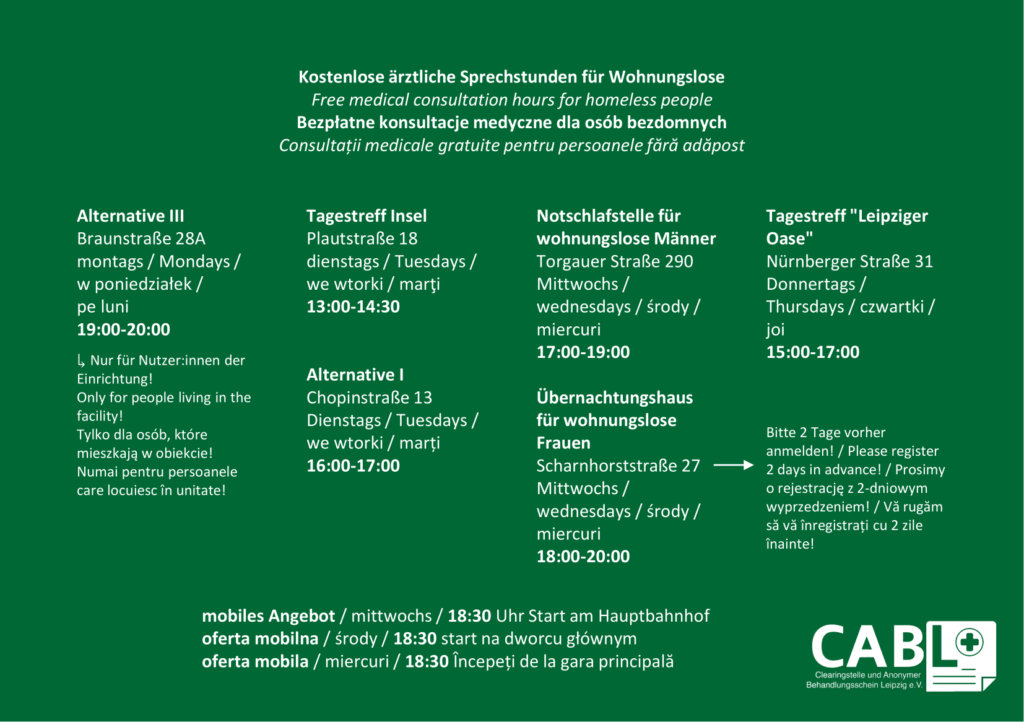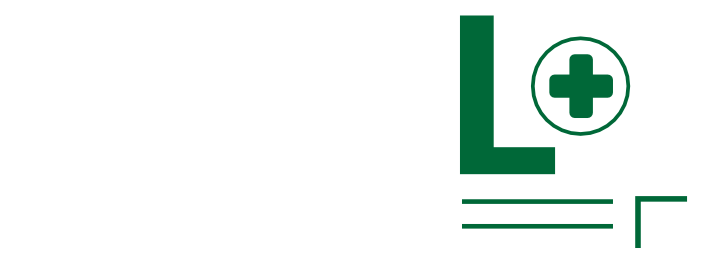Health care for Homeless People

In November 2020, the Leipzig City Council decided to fund the project “low-threshhold Care for homeless people” and commissioned the association CABL e.V. with its implementation. The core of the project is to establish regular consultation hours in Leipzig’s overnight shelters and day centres, where medical care is provided by volunteer doctors. The aim of the new project is not only to provide low-threshold access to medical care for those affected, but also to find long-term solutions for improved health care for homeless people in the Leipzig area – for example, by referring them to regular care.
Medical consultation hours for homeless people:
Day Center INSEL:
Plautstraße 18, 04179 Leipzig
Tuesdays 13:00-14:30
Contact: 0341 246 766 55
Day Center OASE:
Nürnberger Straße 31, 04103 Leipzig
Thursdays 15:00-17:00
Contact: 0341 268 26 70
Emergency shelter for homeless men
Torgauer Str. 190
Wednesdays 17:00 – 10:00
Overnight shelter for homeless women Scharnhorststraße
Scharnhorststraße 27, 04275 Leipzig
Wednesday evening
Contact: 0341 58 52 413
-> In Scharnhorststraße only for users of the facility, please register two days in advance
Alternative III
Braunstraße 28a, 04347 Leipzig
Mondays 19:00 – 20:00
Contact: 0341 30879740
-> In Alternative III only for users of the facility
Background:
The health condition of people without a permanent residence is often poor. At the same time, homeless people in particular have difficult access to regular medical care. One reason is the lack of low-threshold and centrally located services. The fear of being rejected can prevent people from seeing a doctor for existing complaints. In addition, access to medical care is largely blocked for homeless people who do not have valid insurance coverage. The experience of various street social workers in Leipzig shows that for these reasons it is hardly possible, for example, to treat minor wounds and initially minor illnesses in time. This leads to unnecessary aggravation of complaints. Acute emergencies or chronic illnesses can be the result. Initial medical contact often only occurs through emergency hospitalization. In addition, further post-inpatient outpatient care may be necessary after discharge from hospital.
